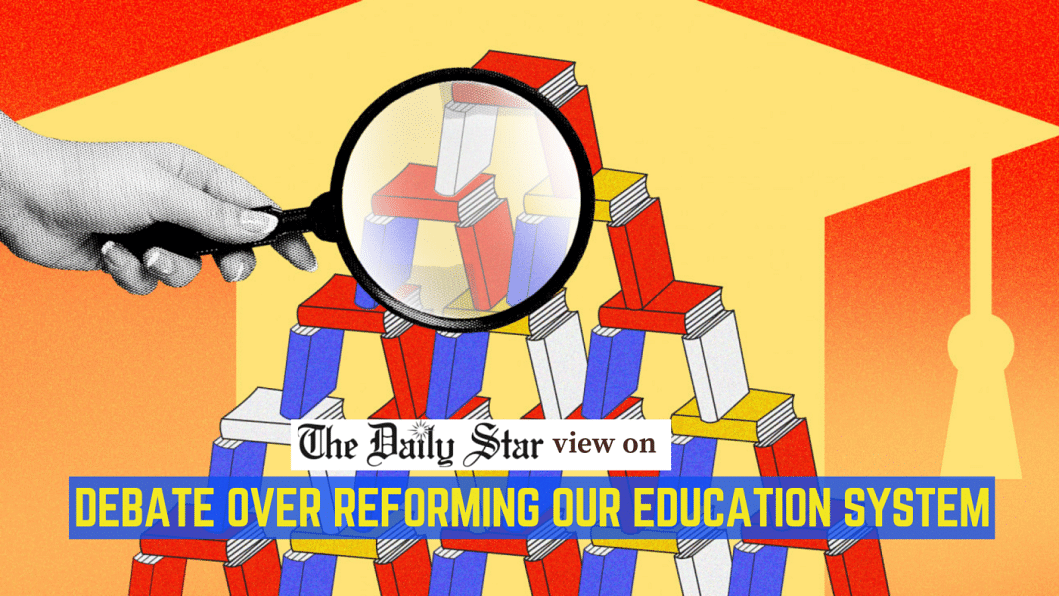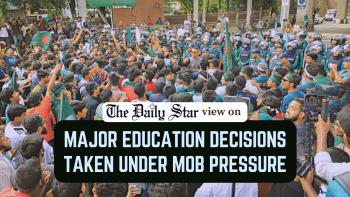Our flawed education system must be fixed

Speakers at an award ceremony of Bishwo Shahitto Kendro raised one of the biggest challenges in education—the stark disparities in the quality of education across different streams, resulting in intensified social inequality. We have three major streams of education: Bangla medium, English medium, and the madrasa system, which mostly offers education to the less privileged sections of society. The glaring discrepancies in the quality of education in each stream result in differences in opportunities, creating an elite class (a tiny portion of the population) that enjoys the most opportunities, while the majority of students fall behind in terms of securing the best jobs and achieving financial prosperity.
There has been, moreover, no assessment of market realities—whether the number of jobs available coincides with the number of university degree holders. Thus, we see many young people with Master's degrees remaining unemployed or working in low-paid jobs. Vocational education, on the other hand, can provide many young people with skills that are in demand both at home and abroad and can lead to better-paying jobs. But very little thought has been given to improving and expanding vocational education.
Prof Abdullah Abu Sayeed, the founder of Bishwo Shahitto Kendro, has also pointed out the lacklustre curricula followed by most schools in the country. Textbooks currently do not engage students and therefore will not be able to produce the kind of enlightened individuals needed to build a nation. The archaic method of rote learning does not lead to critical thinking or analytical skills.
We also agree with one of the speakers that it is disappointing that although an education committee was formed to address reforms in the primary and non-formal education systems, the interim government has yet to form an education commission to holistically address the challenges of the education sector. What could be more important than proposing reforms to this flawed education system, where the quality of education a student receives depends on their family's social and economic status?
We know that in the past there have been many commissions that have made recommendations to address the challenges of an unequal education system, but successive governments have done little or nothing to implement any of them. We expect, however, that the next democratically elected government will give education the priority it deserves, as it is a critical factor in Bangladesh's progress. Education must be accessible to all, enlightening, and relevant for today's world. To that end, establishing an education reform commission is a necessary step.


 For all latest news, follow The Daily Star's Google News channel.
For all latest news, follow The Daily Star's Google News channel. 









Comments